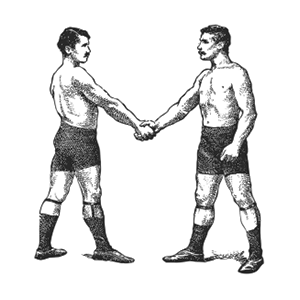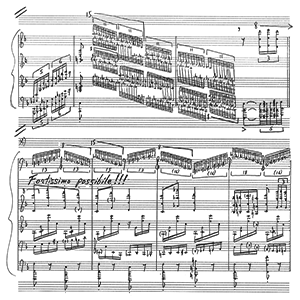A gentlemen’s agreement is an informal agreement between two or more parties. It is typically oral, though may be written, or simply understood as part of an unspoken agreement by convention or through mutually beneficial etiquette.
The essence of a gentlemen’s agreement is that it relies upon the honor of the parties for its fulfillment, rather than being in any way enforceable. It is, therefore, distinct from a legal agreement or contract, which can be enforced if necessary. A variation on the gentlemen’s agreement is the gentlemen’s bet, wherein there is nothing to win or lose through the bet, other than the honor of winning and shame of losing.
read more »
Gentlemen’s Agreement
Circus Galop
Circus Galop is a piece for player piano written by Marc-André Hamelin. It was composed between 1991 and 1994 and it is dedicated to Beatrix and Jürgen Hocker, piano roll makers. Its duration is approximately 4–5 minutes. Scores of this piece are available through the Sorabji Archive. Piano rolls of this piece are available from Wolfgang Heisig and Jürgen Hocker, who have recorded all three of Hamelin’s player piano pieces on the MDG label, which were released in 2008.
It is impossible for a single human to play, as at some points all the piano staves are played at the same time, and up to 21 notes simultaneously. It is used to test MIDI software to drive it to its maximum potential, such as Synthesia, or PianoMIDI.
Zugzwang
Zugzwang [tsook-tsvahng] (German: ‘compulsion to move’) is a term usually used in chess which also applies to various other games. The term finds its formal definition in combinatorial game theory, and it describes a situation where one player is put at a disadvantage because he has to make a move when he would prefer to pass and make no move. The fact that the player must make a move means that his position will be significantly weaker than the hypothetical one in which it was his opponent’s turn to move.
In game theory, it specifically means that it directly changes the outcome of the game from a win to a loss. The term is used less precisely in games such as chess. For instance, it may be defined loosely as ‘a player to move cannot do anything without making an important concession.’ Putting the opponent in zugzwang is a common way to help the superior side win a game.




